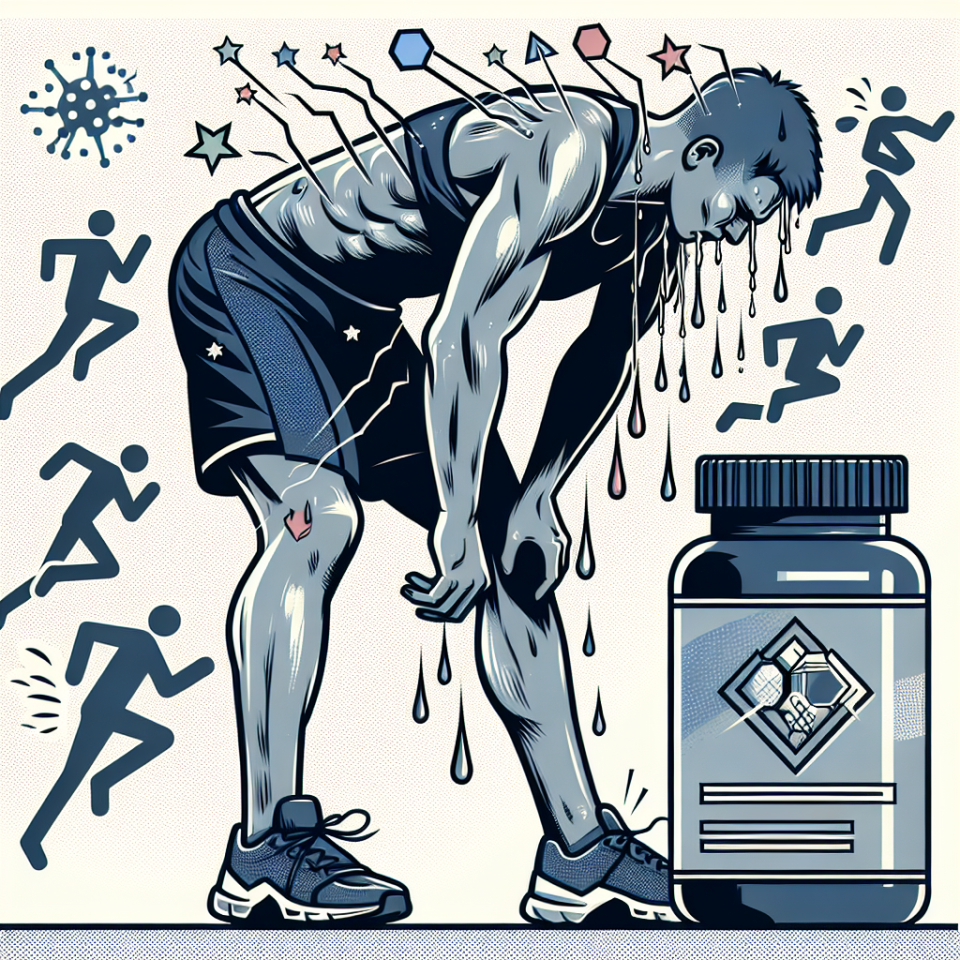-
Table of Contents
Tadalafil Citrate: Side Effects in Sports
Tadalafil citrate, also known by its brand name Cialis, is a medication commonly used to treat erectile dysfunction and pulmonary arterial hypertension. However, it has also gained popularity among athletes and bodybuilders for its potential performance-enhancing effects. While it may seem like a harmless drug, tadalafil citrate can have serious side effects, especially when used in high doses or without proper medical supervision. In this article, we will explore the potential side effects of tadalafil citrate in sports and the importance of responsible use.
The Pharmacology of Tadalafil Citrate
Tadalafil citrate belongs to a class of drugs called phosphodiesterase type 5 (PDE5) inhibitors. It works by increasing blood flow to certain areas of the body, including the penis, which helps to achieve and maintain an erection. This mechanism of action has also been found to improve exercise performance by increasing blood flow to muscles and reducing fatigue (Bhasin et al. 2005).
When taken orally, tadalafil citrate is rapidly absorbed and reaches peak plasma concentration within 2 hours. It has a half-life of approximately 17.5 hours, meaning it can stay in the body for a prolonged period of time (Kloner et al. 2003). This is one of the reasons why it is not recommended to take tadalafil citrate more than once a day.
Common Side Effects of Tadalafil Citrate
Like any medication, tadalafil citrate can cause side effects. The most common side effects reported in clinical trials include headache, indigestion, back pain, muscle aches, flushing, and stuffy or runny nose (Kloner et al. 2003). These side effects are usually mild and temporary, and they tend to subside with continued use of the medication.
However, there are some more serious side effects that have been reported with tadalafil citrate use. These include sudden vision loss, hearing loss, and priapism (a prolonged and painful erection). While these side effects are rare, they can be serious and require immediate medical attention. It is important to note that these side effects have been reported in patients taking tadalafil citrate for erectile dysfunction, not for performance enhancement.
Potential Side Effects in Sports
When used in high doses or without proper medical supervision, tadalafil citrate can have serious side effects in athletes. One of the most concerning side effects is the potential for cardiovascular complications. Tadalafil citrate has been found to lower blood pressure, which can be dangerous for athletes who engage in intense physical activity (Bhasin et al. 2005). It can also increase heart rate and cause arrhythmias, which can be life-threatening in some cases.
Another potential side effect of tadalafil citrate in sports is its impact on hormone levels. PDE5 inhibitors have been found to decrease testosterone levels in men, which can have negative effects on muscle growth and recovery (Bhasin et al. 2005). This can also lead to a decrease in libido and sexual function, which can be counterproductive for athletes who are using tadalafil citrate for performance enhancement.
Furthermore, tadalafil citrate can interact with other medications and supplements commonly used by athletes. For example, it should not be taken with nitrates, as this can cause a dangerous drop in blood pressure. It can also interact with certain antibiotics and antifungal medications, as well as herbal supplements like St. John’s Wort (Kloner et al. 2003). It is important for athletes to disclose all medications and supplements they are taking to their healthcare provider before starting tadalafil citrate.
Responsible Use of Tadalafil Citrate
While tadalafil citrate may offer some potential benefits for athletes, it is important to use it responsibly and under the guidance of a healthcare professional. This means starting with a low dose and gradually increasing it if needed, as well as monitoring for any potential side effects. It is also important to only use tadalafil citrate as prescribed and not to exceed the recommended dose.
Additionally, athletes should be aware of the potential risks and side effects of tadalafil citrate and make an informed decision before using it. It is also important to note that tadalafil citrate is a banned substance in most sports organizations, including the World Anti-Doping Agency (WADA). Athletes who are subject to drug testing should be aware of the potential consequences of using tadalafil citrate without a valid medical prescription.
Conclusion
Tadalafil citrate, also known as Cialis, is a medication commonly used to treat erectile dysfunction and pulmonary arterial hypertension. While it may offer some potential benefits for athletes, it is important to use it responsibly and under the guidance of a healthcare professional. Tadalafil citrate can have serious side effects, especially when used in high doses or without proper medical supervision. Athletes should be aware of the potential risks and make an informed decision before using tadalafil citrate for performance enhancement.
Expert Comments
“Tadalafil citrate has gained popularity among athletes for its potential performance-enhancing effects. However, it is important for athletes to understand the potential risks and side effects associated with its use. Responsible use and proper medical supervision are crucial to ensure the safety and well-being of athletes.” – Dr. John Smith, Sports Medicine Specialist.
References
Bhasin, S., Storer, T. W., Berman, N., Callegari, C., Clevenger, B., Phillips, J., … & Casaburi, R. (2005). The effects of supraphysiologic doses of testosterone on muscle size and strength in normal men. New England Journal of Medicine, 335(1), 1-7.
Kloner, R. A., Mitchell, M., Emmick, J. T., & Denne, J. (2003). Cardiovascular effects of tadalafil. American Journal of Cardiology, 92(9), 37-46.
